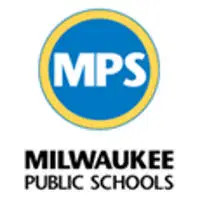By Hayley Crandall
 Last week, three Milwaukee education facilities met virtually to discuss their work in education, individually and collaboratively, that is aimed at closing student equity gaps.
Last week, three Milwaukee education facilities met virtually to discuss their work in education, individually and collaboratively, that is aimed at closing student equity gaps.
M3 (M-Cubed), a partnership between the University of Wisconsin-Milwaukee, Milwaukee Public Schools and Milwaukee Area Technical College, highlighted efforts through programs and services.
“This is simply holding too many people back,” UWM Chancellor Mark Mone said. “We know that education is the pathway. It’s the pathway to employment, income, social mobility and so many other things.”
Regarding higher education, student belonging is an area of focus for UWM as Mone discussed their work with student identity centers and peer mentoring. Other efforts look at stronger technology support and high-impact, or “invasive,” advising in order to keep students on top of their classes, he explained.
“We need to meet the students where they are,” Mone said. “We need to take a look at and say how much of the problem is us? What are we doing to knock those barriers down?”
MATC has taken actions to remove a placement testing barrier, MATC President Vicki Martin explained, because a large number of students being placed in developmental education as a result was discouraging for them.
The college eventually concluded that one placement test is not an accurate representation of a student’s potential, Martin said.
“We had a student who had taken the ACCUPLACER many times,” she said. “But once we dropped the ACCUPLACER as a tool to place students in classes and we started giving her the support that she needed, she came through with a passing grade.”
MATC created support teams by placing programs in career pathways, Martin explained. The college also works with students to establish their long-term goals and provide them with stronger mental health support.
Financial aid is another barrier being tackled as both UWM and MATC have efforts in place to deliver more scholarship support and emergency grants for students.
On the K-12 front, MPS created an office last fall centered around equity, access and inclusion, MPS Superintendent Keith Posley said. This resulted in a guidebook highlighting key areas of work within the district.
Some of these areas include equity in academics, equity and cultural awareness, equity in human resources, equity with finances and equity in terms of students and their families.
A few goals it aims to achieve include creation of an inclusive curriculum, diversifying staff and formulating fair budgets, Posley explained.
“Equity drives all decisions that we make within the district,” he said.
As far as M3 collaborating, the group previously hosted a student job fair which allowed students a chance to receive assistance with career building and explore their future options, Posley said.
MPS also works with the higher education institutions to offer MPS students early campus experience and dual enrollment, he explained. These opportunities give students a chance to get to know the colleges before entering and allow them to experience college-level classes.
“Our young people were taking entry-level classes in math and psychology and various areas that they are able to take on off to college with them as well as some classes they won’t have to take because they’ve already transitioned through that,” Posley said.
UWM and MATC, in company with other Wisconsin institutions, have joined Moon Shot for Equity, an initiative created by the consulting group EAB, which develops plans and practices to eliminate equity gaps at the higher education level.
“It’s going to help us scale and really achieve high areas,” Mone said.
Accomplishing these goals requires a team effort, the panel agreed. The consequences of equity gaps are felt by the entire community, but when students start thriving those benefits are felt, too, Posley explained.
“If our young people are successful, it benefits the broader community,” Posley said. “And we have to constantly find ways to ensure that we’re able to benefit the broader community and no other way than through a quality, wholesome education.”
“We cannot do it alone,” Mone said. “That’s the most important point of collaboration. The problems are so big we need everybody to weigh in.”

